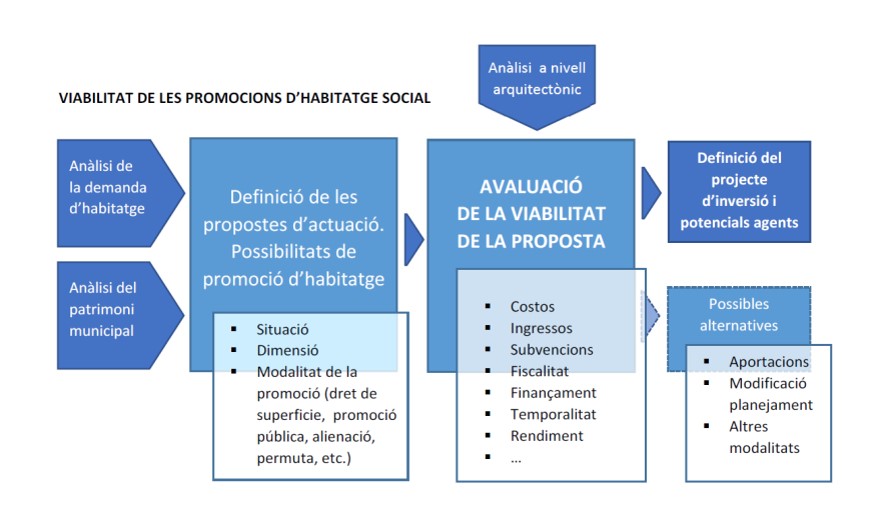 News
News
GMG-IMPLICA carries out feasibility reports for social housing developments for local authorities.
The entry into force of Decree Law 17/2019, which amends the current Urban Planning Law, generates greater obligations for local councils to act to guarantee the right to housing for citizens. The aim of this new legislation is to mobilise the land of the municipal patrimony to create more social housing, preferably for rental purposes, and preserving the public ownership of the land. Faced with this new legal framework, many local councils are analysing the possibilities of starting new subsidised housing developments or for public housing. The problem now is no longer the lack of public land – current urban planning legislation has provided councils with land for this purpose – but the resources available to carry out these developments. In this context, the GMG-IMPLICA team has recently been working on the feasibility study of some of these plots for various public bodies: Barcelona Provincial Council, Castellar Town Council, PUMSA, Mataró Town Council, etc… These are very transversal works, given that they must be analysed from an economic, architectural, urbanistic and sometimes also social point of view, when the demand for housing must first be analysed. It is therefore a field in which GMG-IMPLICA professionals can offer a good service.
The work begins with the study of one or several municipal plots at an architectural level – or sometimes on the basis of a previous analysis at a more general level of the municipal land assets – in order to make a careful assessment of costs, and from here evaluate the economic viability of the development, taking into account the different variables that condition the result: income projection, subsidies, financing, etc. Depending on the origin and qualification of the land, the possibilities of development are studied in the different modalities allowed: public development, concession, surface right, alienation, swap… In the event that a sufficient degree of viability is not achieved, alternatives can be proposed which can sometimes involve actions at the urban planning level (modification of the planning, management instruments) or at the economic level (greater public contributions, etc.). The final objective is to see what real possibilities can be considered to implement these dwellings. Few city councils can take on the public promotion of this type of project, but there are other ways, depending on the conditions of each case, that may be attractive to other agents, such as foundations and non-profit organisations, development companies, cooperatives, etc.
